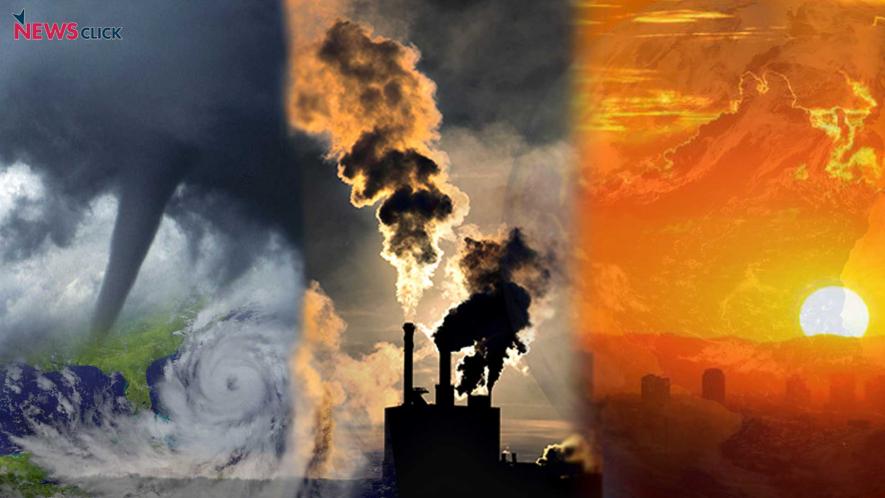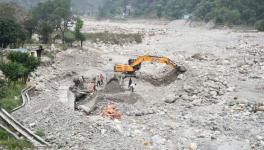Climate Change: Co-Extinction Will Cause Loss of a Quarter of Species by 2100, Says Study

Another worrisome situation of climate change and pattern of land usage has been predicted by scientists where Earth may see a loss of its biodiversity by over a quarter by 2100. In a recent study published in Science, scientists analysed how the co-extinction of species accelerates the overall loss of biodiversity and predicted possible loss.
Previous studies have also indicated that biodiversity loss is accelerated by co-extinctions, which is the extinction of interconnected species. The new study did a systematic analysis of the interconnected vertebrate food webs and came out with a quantitative prediction of the probable scenario in future. The study used computer modelling to carry out the analysis in the context of climate changes and the patterns of land usage.
In this collaborative work, European and Australian scientists developed a computer model where 15,000 food webs were used to predict the fate of interconnected species that will become extinct due to climate change and land usage. The researchers created a model of Earth with virtual species using one of Europe's most powerful supercomputers. The results reveal that cascading extinctions are unavoidable, and the Earth may witness a 10% loss of its animals and plants by 2050, which can rise to beyond 25% by the end of this century.
Explaining the findings, study co-author Corey J.A. Bradshaw said in a statement, "Think of a predatory species that loses its prey to climate change. The loss of the prey species is a 'primary extinction' because it succumbed directly to a disturbance. But with nothing to eat, its predator will also go extinct (a 'co-extinction'). Or, imagine a parasite losing its host to deforestation, or a flowering plant losing its pollinators because it becomes too warm. Every species depends on others in some way." Bradshaw is a professor at the Flinders University of Australia.
Experts opine that the new study is one of the first attempts to analyse how interconnected species at a global scale will suffer an additional loss due to co-extinctions. There have been excellent studies previously where the fate of species was analysed as a direct outcome of climate change and habitat loss; however, more was needed to connect them.
In their model, the scientists built a virtual Earth where species interconnected to one another are linked by the food chains, like who eats what. This way, they built a massive network. Then the factors of climate change and land usage were applied to the network, and the predictive calculations were made. The model also encompassed the dynamics of changing habitats by the species in changing environments.
Explaining the computer model Giovanni Strona of Helsinki University said, "Essentially, we have populated a virtual world from the ground up and mapped the resulting fate of thousands of species across the globe to determine the likelihood of real-world tipping points. We can then assess adaptation to different climate scenarios and interlink with other factors to predict a pattern of co-extinctions. By running many simulations over three main scenarios of climate until 2050 and 2100—the so-called Shared Socioeconomic Pathways (SSP) from the Intergovernmental Panel on Climate Change (IPCC), we show that there will be up to 34% more co-extinctions overall by 2100 than are predicted from direct effects alone."
Moreover, the predictions suggested that the extinction rate of the most vulnerable species will be increased by a staggering 184% by the end of the century.
The researchers claim the study to be unique in that it is not only confined to the estimation of species loss as a direct effect of climate change and land usage but also accounts for the secondary effect on biodiversity, which is enormous. Children born today and who live till the age of 70 will witness the disappearance of thousands of species in one lifetime. This will include tiny insects, many plants to large animals like elephants, the study warns.
However, there remains a caveat; the study is only based on computer simulations, which may account for some variations in the degree of loss as has been predicted. But, the essence of the study is not ignorable. Mass extinction is inevitable due to climate change and patterns of land usage.
Get the latest reports & analysis with people's perspective on Protests, movements & deep analytical videos, discussions of the current affairs in your Telegram app. Subscribe to NewsClick's Telegram channel & get Real-Time updates on stories, as they get published on our website.
























